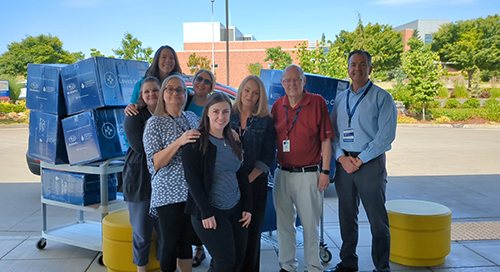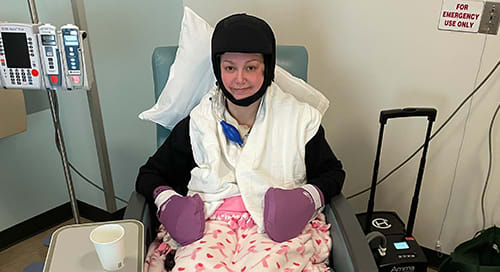How cold cap therapy prevented patient’s hair loss during cancer treatment
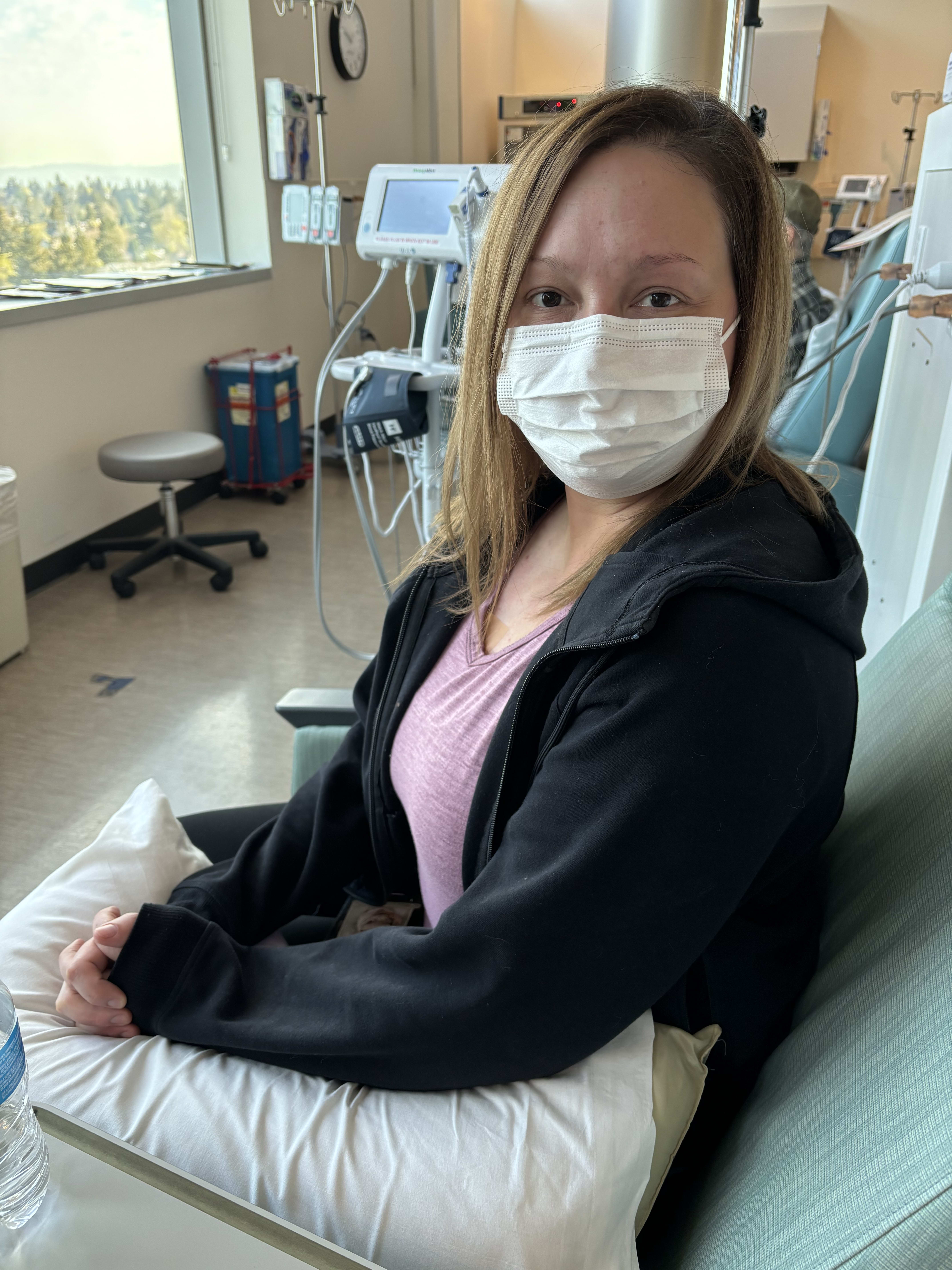
What surprised Molly Barragan most about the cold cap therapy she used during treatment for breast cancer was that she didn’t lose her hair.
“I didn’t realize how much having hair helped you feel like a normal person,” Molly said. “People said, ‘Oh my gosh, you look so good.’ I thought it was superficial, but it really helped how I felt.”
The RMF Foundation donated funds for Providence to provide scalp cooling devices at its Oregon ministries. The gift, along with another donation from a generous donor and Providence patient, made scalp cooling caps available for eligible patients with cancer who would not be able to afford them otherwise.
“Thank you,” Molly said, expressing appreciation to the donors. “It definitely made everything easier.”
Retaining a sense of self
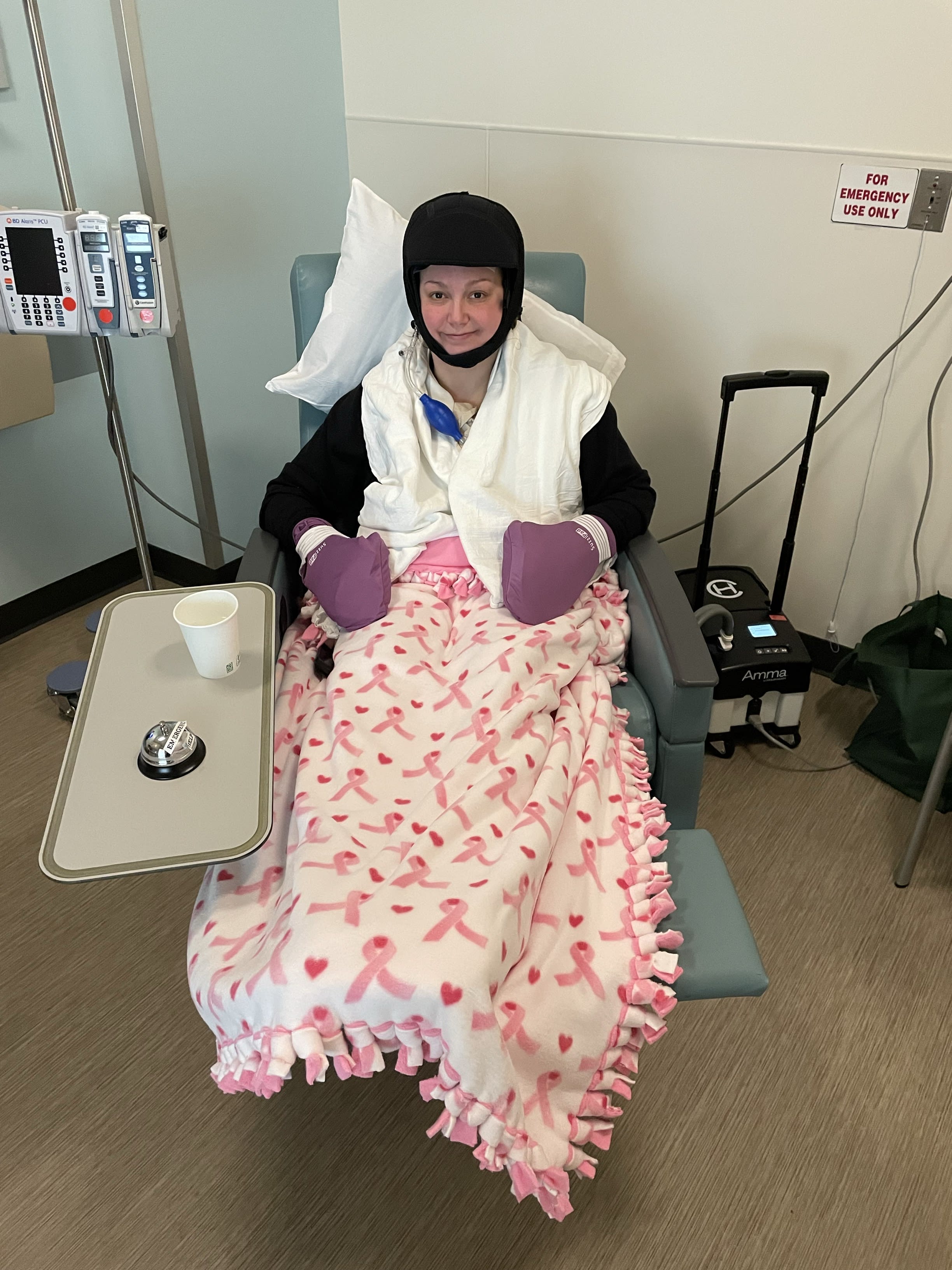 Most chemotherapy options for breast cancer cause patients to lose their hair. A cold cap cools the scalp, which narrows blood vessels and temporarily decreases blood flow to the area. This action reduces the amount of chemotherapy medication that reaches the hair follicles, helping the scalp hair stay intact during treatment.
Most chemotherapy options for breast cancer cause patients to lose their hair. A cold cap cools the scalp, which narrows blood vessels and temporarily decreases blood flow to the area. This action reduces the amount of chemotherapy medication that reaches the hair follicles, helping the scalp hair stay intact during treatment.
“The cold cap treatment is all about providing patients with a sense of control and a way to preserve their normalcy,” said David Page, M.D., Molly’s oncologist with Providence Cancer Institute. Dr. Page also is a cancer researcher with Earle A. Chiles Research Institute, the research arm of Providence Cancer Institute.
Colleague’s caring nudge leads to cancer diagnosis
Molly almost didn’t catch her cancer in time. A young, healthy new mother in her late thirties, Molly also has a busy job as an emergency department nurse at Providence Willamette Falls Medical Center. A mammogram wasn’t on her to-do checklist.
Providence offers a free and convenient mammogram screening day for caregivers. The annual event is held in October. Molly’s manager, Karen Jeffrey-Markowski, RN, was insistent that Molly take advantage of the opportunity. “I'd just had a breast exam with my OB, but Karen was very persuasive,” Molly said.
A few weeks later, the mammogram revealed abnormalities, setting Molly off on her difficult journey. A nurse navigator helped Molly manage symptoms and side effects, coordinated appointments and provided emotional support. “The nurse navigator was amazing,” Molly said. “Even though I am a nurse, she helped me so much.”
Providence’s cancer nurse navigation program is made possible through philanthropic gifts, too.
To learn more or make a gift, visit Providence Foundations of Oregon.
Gratitude for the expertise and care
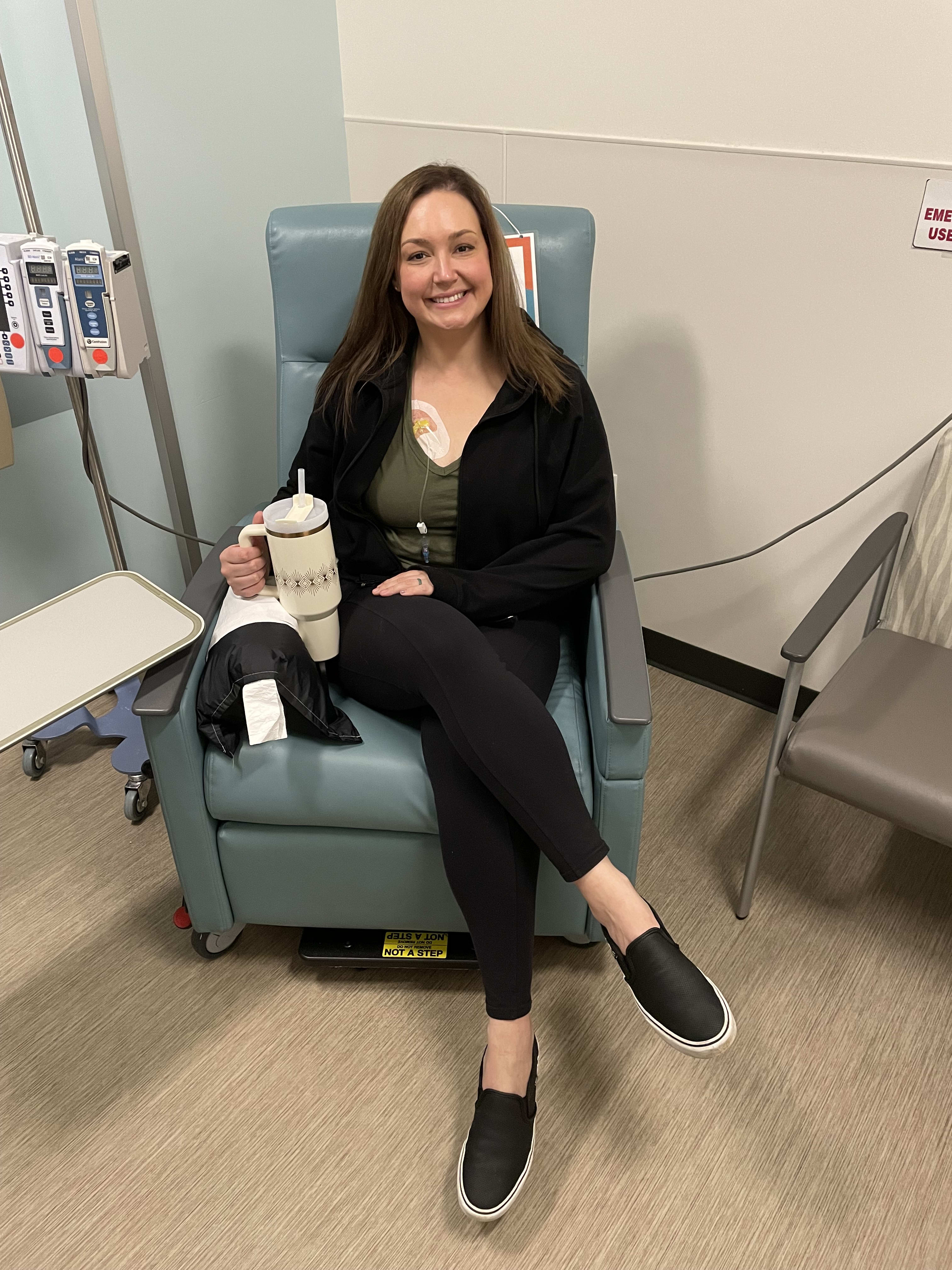 Molly credited the scalp cooling device for helping keep her spirit strong. She is now in the preventive phase of treatment and grateful and appreciative for her care.
Molly credited the scalp cooling device for helping keep her spirit strong. She is now in the preventive phase of treatment and grateful and appreciative for her care.
“We felt so taken care of,” said her husband, Ernie Barragan, RN, also a nurse at Providence Willamette Falls. “We are so thankful for the expertise, compassion and support of those at the cancer institute. We are also thankful to the donors whose support help bring excellent cancer care to Providence.”
Providence Cancer Institute: A center of excellence
 In 2024, Providence Cancer Institute was recognized by Becker’s Hospital Review as one of the Top 100 hospitals and health systems for excellence in oncology. This honor reflects our commitment to advancing cancer care through innovation, collaboration and compassion.
In 2024, Providence Cancer Institute was recognized by Becker’s Hospital Review as one of the Top 100 hospitals and health systems for excellence in oncology. This honor reflects our commitment to advancing cancer care through innovation, collaboration and compassion.
Discover more about the leading-edge care at Providence Cancer Institute.
Related news
Clinical trials matter, just ask Randy
From life-saving surgery to back on the slopes: A photographer’s story
